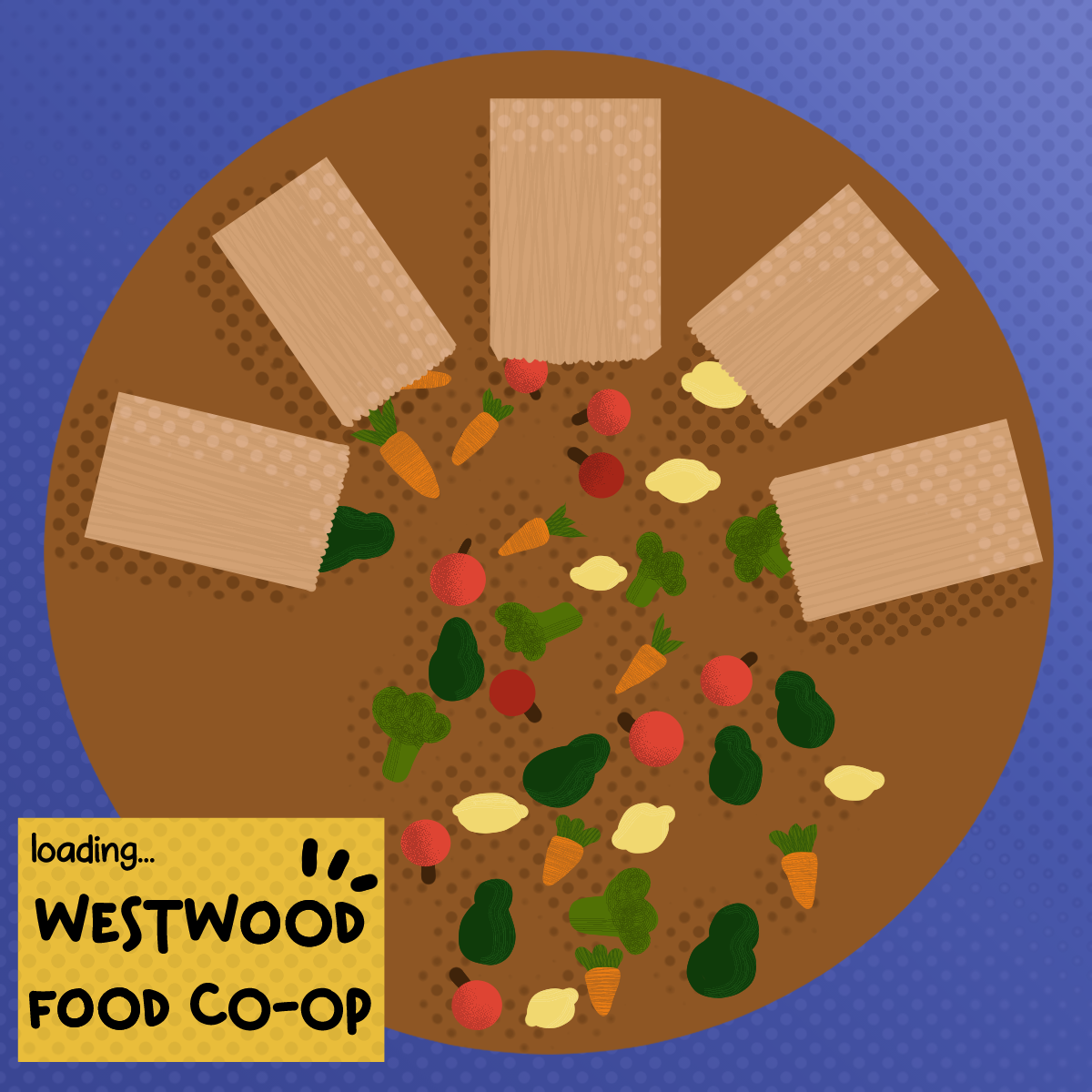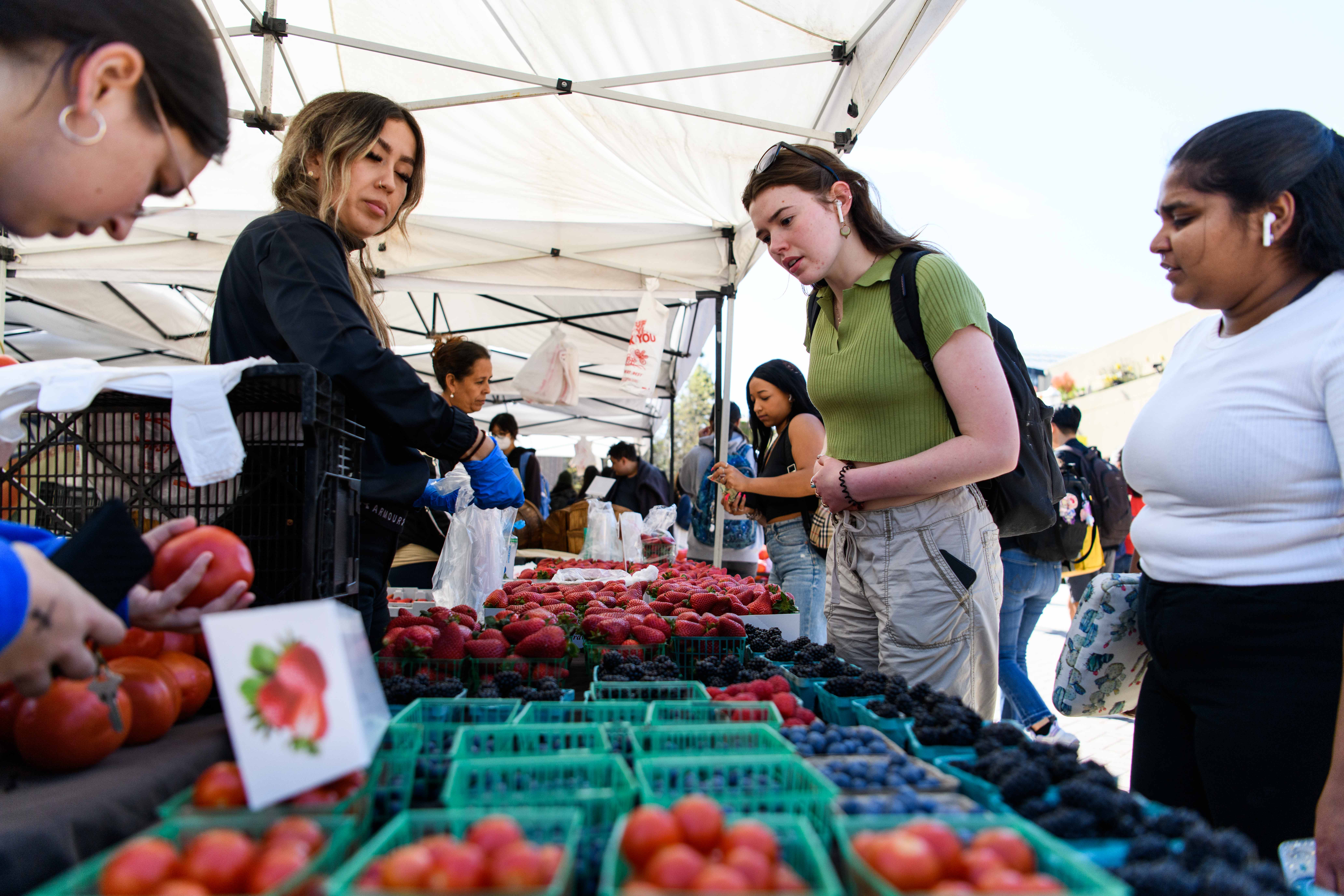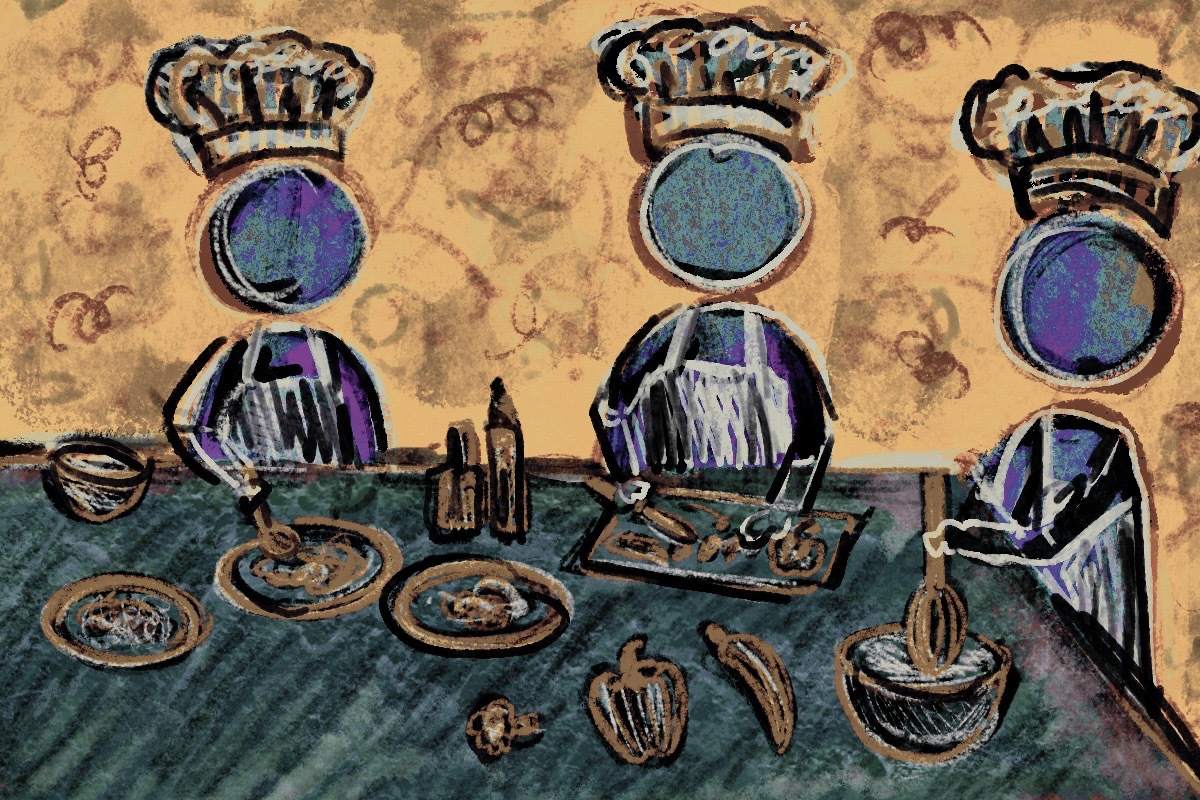Westwood Food Co-op provides local produce, supports farmers’ rights

(Alicia Melanie Caldera/Daily Bruin)
By Kaycie Rippe
Aug. 19, 2023 7:56 p.m.
The Westwood Food Cooperative is urging students to grocery shop in their own backyards.
During the 2022-2023 academic year, the Westwood Food Co-op was reestablished and registered as an official club at UCLA after its founding members graduated in 2022. Since then, rising fourth-year human biology and society student Juliet Cushing said the organization has fostered a community of farmers’ rights activists, environmentalists and food lovers who congregate to make local food more accessible and support small-scale farmers. Rising third-year biology student Grace Donohue said the organization’s main initiative is its Community Supported Agriculture boxes, which provide the Westwood community with an abundance of weekly produce for $10 per box. Donohue said she was inspired to join the club’s mission after being a customer of the boxes herself.
“The most rewarding thing is that there is a very tangible, visible action that occurs as a result of the work that we do, which is that people have food and farmers have money,” Donohue said. “It’s not some abstract idea or concept. We are physically performing an action that has a noticeable and tangible difference in people’s lives.”
[Related: UCLA Farmer’s Market provides students access to affordable, locally grown produce]
Ariella Sassover, a rising fourth-year psychobiology student, said she enjoys interacting with people picking up their CSA boxes because engaging in conversation on food injustice is the beginning of change. Customers of the boxes can expect two pieces of leafy greens, a flavorful vegetable like garlic and a couple of fruits, Cushing said. Occasionally, Donohue said the group plans themed boxes, such as a past Valentine’s Day box, which may vary in their content.
“The food that you eat should be, I believe, a reflection of where you live, the season and the values of the people who grew and cared for the land,” Donohue said. “We have completely disconnected ourselves from the production of food, and it’s really easy to get disconnected from those values as well.”
Every week, the club visits the Pacific Palisades Farmers Market to curate the CSA boxes, Sassover said. Since the group buys groceries for up to 30 people at a time, she said John Givens Farm in Santa Barbara sells its crops for wholesale prices and often gives the co-op any leftover produce, ultimately reducing food waste and providing the community with a greater amount of produce.
A proud supporter of purchasing local produce, Cushing said the act of buying from neighboring farmers not only increases the nutritional value of the food one consumes but also ensures better working conditions for farmers. Industrialized agriculture is able to provide goods for lower prices because of its lower wages and poor labor environment, she said, and these competitive prices have been bankrupting family-owned farms for years.
Because of the financial barrier of buying locally grown crops, many college students may have never considered it a possibility, but the co-op hopes to change that through its affordable CSA program, Sassover said. Moreover, Cushing said the group is looking to decrease its prices by obtaining grants from UCLA.
“CSA supports local small-scale farmers,” Cushing said. “And by financially supporting them, we give these people livelihoods that have been taken away by Big Ag and huge corporations and industrialized farms.”
[Related: Bruin cooks up plan to promote culinary skills through meal kit, social media]
Beyond CSA, the club also holds events for community bonding and education, Cushing said. For example, Co-op Pots is a potluck program that the organization puts on, which brings together like–minded individuals over food, she said. The group recently collaborated with the Environmentalists of Color Collective, Cushing said, which had published a zine on its members’ favorite culturally significant foods. Co-op Pots featured these foods and allowed students to bond over food’s ability to touch more than just the stomach. Additionally, Cushing said the co-op plans to utilize these events to elevate the voices of UCLA students through open mic nights or video sharing in the future.
With the new school year, Cushing said the club hopes to follow in the footsteps of the Environmentalists of Color Collective by publishing educational articles on topics of farm labor, food injustice, the environment, human health and systems of oppression in farming. As a child of multigenerational family farmers, Cushing said she grew up spending summers at the farm and witnessing harvests. Recently, she realized she has the opportunity to learn about the food system firsthand and hopes to reconnect her peers with their food’s roots as well through these new articles, Cushing said.
Currently, Sassover said the co-op is only made up of a few members, most of whom are graduating in 2024. Therefore, incoming students are encouraged to apply to join the club’s community of advocates for locally grown, environmentally friendly produce, she said. As the club has no hierarchical structure, Cushing said any member is able to take a leadership role and find new approaches to fostering community and aiding local farmers.
Cushing said the growth of industry has caused society to become significantly detached from food production, leaving big companies to take control over the food on grocery store shelves. Ultimately, Cushing said the club hopes to remind students that they have purchasing power and can make a difference in the food industry individually, whether or not that is through their CSA boxes.
“We can make a huge difference in the food system,” Cushing said. “It really just takes one person at a time. One little shift that leads to two little shifts, maybe, and collectively it snowballs into a bigger movement.”





